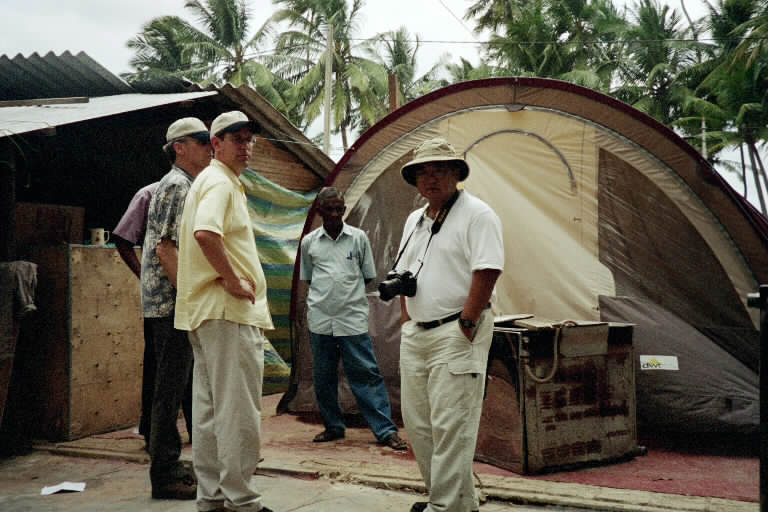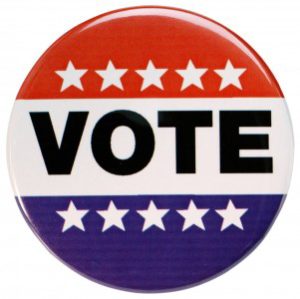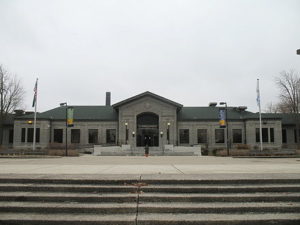This week, it seemed as if the world was determined to break my heart. I am sure I am not the only one who felt that way, but I may be the one who puts two seemingly unrelated events together and wonders how we come to such a pass. I often write about how we can minimize losses from natural disasters, but today’s topic is tragedy wrought by humans upon others.
Illinois
Let me start closer to home. In Crystal Lake, an outer-ring Chicago suburb, a five-year-old boy, “AJ” Freund, was found in a shallow grave in an isolated site near his home. Police found him during an investigation triggered by the boy’s father, who called 911 to report that he was missing. Police dogs tracing his scent at home found no evidence that he had walked out the door. Interrogation of the father, a 60-year-old attorney engaged to a former client in a divorce case, the boy’s 36-year-old mother, caused the police to become suspicious of the couple themselves.
It turned out that the Illinois Department of Children and Family Services (DCFS) had been involved with the family since the boy was born with opiates in his system, clearly indicating a drug problem for the mother. One police report a few months ago indicated that the home was filthy with pet feces and utilities were shut off, but DCFS apparently found concerns about neglect “unfounded.”
So, how did AJ wind up in his shallow grave? According to the police, the couple kept him in a cold shower before beating him, resulting in his death from head trauma. Needless to say, the couple are now in jail, facing murder charges, and are separately secluded from the rest of the McHenry County jail population for their own safety.
I don’t wish here to focus on the court case. Judge, jury, and prosecutors will make their own determinations as the case proceeds, and like anyone else, the parents are entitled to a defense. What concerns me is what needs to happen at DCFS to prevent many more children from being similarly harmed. This is an agency with serious problems that must be solved.
In the past four years, we had a governor with a serious empathy deficit, who preferred to engineer a stalemate with the Democratic legislature over the state budget while bills went unpaid and progress at agencies like DCFS sputtered, and numerous nonprofit social service providers went unpaid for months on end. But Republican Bruce Rauner did not initiate the crisis at DCFS, which is a product of neglect and malfeasance by several prior administrations, not to mention the frequent unwillingness of the legislature to prioritize funding for social services. But funding is not the only issue.
How bad has it been? According to today’s Chicago Tribune, “DCFS has churned through 14 previous leaders since 2003 and has seen its budget and staffing dwindle.” This turnover implicates two previous Democratic administrations as well as that of Rauner, who had his own revolving door for DCFS executives in the last four years. No one can establish stability and quality of services in such an environment. We can only hope that Gov. J.B. Pritzker, who took office three months ago, can make this a priority and turn the situation around. He has brought in Marc Smith, previously the head of a suburban social service organization, and more importantly, has requested a $75 million increase in funding for the agency. He is taking heat for proposing to amend Illinois’s constitution to allow a progressive income tax in order to gain new revenue from high-income residents, but the money must come from somewhere and the state needs to balance its wobbly budget.
But let me get more personal here. And I do take this personally.
My wife and I have been foster parents since 1991. Two daughters we adopted are now grown, and there are grandchildren. We also have guardianship for one grandson at the moment, so we have a long history of interaction with DCFS. Like many other foster and adoptive parents in Illinois, we have long had reason to question the managerial culture of the agency, which has tended to emphasize restoring or maintaining the custody of natural parents whenever possible. I understand that generally, but not when there is obvious abuse or neglect and caseworkers either fail to take notice or fail to act to protect the children. As headlines have often suggested, that happens more than we may want to know. AJ has become the latest case in point.
Long ago, two children from a large family reached out to connect with us, and we often let them visit and share their story. We relayed some concerns to DCFS. As a teacher, my wife fell into the category of mandated reporters under state law. Doctors, school officials, and others who may suspect or witness abuse or neglect are legally obligated to report it to the DCFS hotline. In this case, nothing happened until one child died of starvation. Then the remaining children were placed in foster care.
On another unrelated occasion, I became concerned about belt marks on a three-year-old child. I called the hotline, where an imperious responder told me that “under Illinois law, parents are allowed to use corporal punishment to discipline their children.” Appalled by her disinterest, I raised my voice: “We are talking about belt marks on a three-year-old!”
“Mr. Schwab,” she responded sternly, “it is not illegal for parents to use corporal punishment.” Stunned by this indifference, I faced the same dilemma I am sure has confronted others in the same position: Where do we go from here?
Such responses, to be sure, are not always the case. They simply happen too often. Sometimes, an overburdened caseworker takes shortcuts or fails to investigate. The point is that something must change.
Some Illinois legislators—from both parties—were seeking answers from DCFS officials at a hearing in Springfield yesterday. I hope they are all, finally, serious as hell about fostering positive change and not just grabbing headlines in a dramatic case. Too many children’s lives and welfare are at stake.
Sri Lanka
By now, I don’t imagine there is a need to rehash the details of recent bombings in Sri Lanka. It would have been hard to escape the news: suicide bombings by apparent Muslim extremists in three hotels in Colombo as well as several Christian churches on Easter Sunday, killing well over 250 people. The body count has varied, in part because it is difficult to count bodies that have been so badly burned and blown apart. Exactly who planned what is not entirely clear yet, although authorities have blamed a homegrown Muslim militant organization, National Towheed Jamaat. Whether there are ties to Islamic State is a subject of investigation. The precise motive is something that remains unclear.
This comes just a month after the attack by an Australian white supremacist on a mosque in Christchurch, New Zealand, which I discussed last month. I noted that I had spent time in New Zealand in 2008 as a Visiting Fellow for a research center in Christchurch. Thus, I found it disturbing in part because of a personal connection.
It so happens that I spent 10 days in Sri Lanka in 2005 as part of an eight-member interdisciplinary team of Americans invited by the Sri Lanka Institute of Architects to assess damage from the Indian Ocean tsunami and recommend options for rebuilding. In the weeks before the trip, I made a brief, stumbling attempt to acquire some familiarity with the dominant national language, Sinhala, but found it daunting. But I find such efforts allow me to breathe in a little more of the ethos of the nation I am visiting. And from further reading and from talking to our hosts, I learned some very interesting facts about Sri Lanka.
The civil war that once raged is now over, but that was not the case then. We traveled from the capital, Colombo, on the western coast of this island, along the coast to Batticaloa, halfway up the eastern coast, before we were forced to turn west through the Central Highlands of Kandy back to Colombo. The Northeast and the Jaffna Peninsula were under the control of the rebel Tamil Tigers. Along the way back, we encountered some military checkpoints. Caught in the middle of this long-running tragedy were the people of many rural villages and smaller cities. As one architect on our team from New Mexico, who was a Vietnam veteran, commented, “The rural people are the ones who always take it in the shorts.”
But this struggle had little to do with Muslims or Christians, except coincidentally. They were largely bystanders. The battle was between the Sinhalese majority and the Tamil minority, which wanted rights to sustain its own Tamil language and culture in a multicultural nation. That sounds fair enough, but the Tamil Tigers became an incredibly vicious movement that had few compunctions about sending suicide bombers to blow up public buses. They demanded a Tamil homeland in the regions they controlled. Thousands of Sri Lankans died during decades of armed insurgency. Finally, the rebellion was suppressed by the government about ten years ago.
When we arrived, a cease-fire negotiated by Norwegian diplomats was in effect, but 35,000 Sri Lankans had died as a result of the tsunami—drowned in a wall of water, washed out to sea, crushed beneath shattered buildings. The southern and eastern coasts were devastated. A nation that had suffered so much needless death suffered even more at the hands of the forces of nature, reinforced by a noticeable lack of preparation for such an event.
Even before I left for Sri Lanka, I experienced a personal connection to it all. The Rev. Eardley Mendis, a Sri Lankan-American pastor, had worked as the custodian for Augustana Lutheran Church, of which my wife and I are members, while studying at the nearby Lutheran School of Theology in Chicago. By 2005, he was the pastor of a local Lutheran church largely supported by Asian Americans. But his wife and daughter had returned to visit family in Sri Lanka over Christmas in 2004. When the tsunami struck on December 26, they were aboard the coastal passenger train that was destroyed by the second major tsunami wave, largely due to lack of warning of the impending danger. Eardley’s daughter survived; his wife did not. I interviewed him over lunch before I left Chicago. Later, during the trip, a villager in Peraliya took me to see the demolished train, stored on a side track as a memorial. For me, it was one of the most emotionally powerful moments of the entire tour.

This man then showed all of us what was left of his home by the sea, including his makeshift oven, where he cooked meals that he sold to travelers along the road. That was his now fragile livelihood.

Sri Lanka has had a measure of peace for most of this decade since the end of the Tamil Tigers insurrection.
A note on Sri Lankan demographics is in order at this point. About two-thirds of the nation is Buddhist, mostly of Sinhalese ethnicity. About 15 percent are Tamil and largely Hindu. The remainder of the nation mostly consists of two religious minorities, half Muslim and half Christian. The Muslims are mostly descended from traders who occupied the coastal cities since medieval times, with Sri Lanka about midway between the predominantly Muslim Arabian peninsula and predominantly Muslim Indonesia. While a very small number of Christians are descended from European colonial settlers of centuries past, most are converts of native Sri Lankan ancestry. The churches, both Catholic and Protestant, are part of the fabric of modern Sri Lanka.
And so it may seem curious that one minority might attack another, but it is far more important to know that the vast majority of Sri Lankans of all faiths have had more than enough of war and bombings and sectarian violence. The perpetrators of the Easter bombings appear to include some children of a wealthy spice dealer in Colombo. Prime Minister Ranil Wickremesinghe apparently has expressed doubt that the father knew what the children were up to, but the police rightly seem determined to find out. Muslims, like other people across the planet, sometimes experience the pain of children who choose an evil path. The Bible is replete with such stories.
So, for the moment, Christian bishops are warning worshipers to stay home and avoid danger. Churches and other houses of worship no longer appear to be sanctuaries, but targets. Here, it is probably worth quoting the words of the chairman of one Colombo mosque, Akurana Muhandramlage Jamaldeen Mohamed Jayfer, in an Associated Press story today, describing the attackers as:
“not Muslims. This is not Islam. This is an animal. We don’t have a word (strong enough) to curse them.”
My only comment would be that he may have inadvertently insulted the animals, who merely hunt for food. Only humans harbor hatred powerful enough to motivate such heartless mass murder.
Jim Schwab





